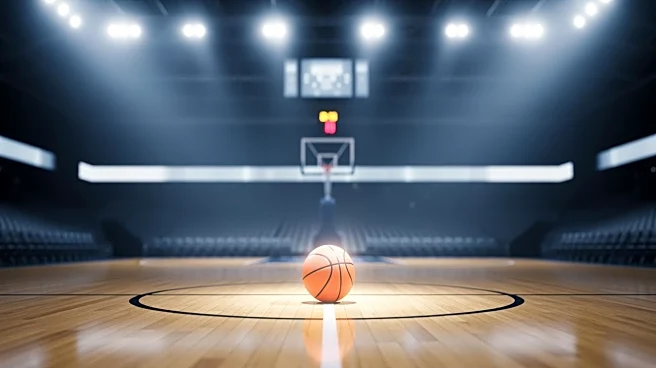What's Happening?
Former NBA player Stephon Marbury has spoken about the mental health struggles faced by Julius Randle during his time with the New York Knicks. Randle, now with the Minnesota Timberwolves, experienced significant pressure while playing in New York, a major
media market. Marbury, who also faced mental health challenges during his career, highlighted the intense scrutiny and expectations that come with playing in New York. Randle's issues were revealed in an interview where he discussed the pressures of battling multiple challenges beyond just winning games. Randle was traded to Minnesota as part of a deal involving Karl-Anthony Towns, and he has since become a key player for the Timberwolves.
Why It's Important?
The discussion around Randle's mental health underscores the importance of addressing mental health issues in professional sports. Athletes often face immense pressure and scrutiny, which can impact their mental well-being. Marbury's comments bring attention to the need for support systems and resources for athletes dealing with mental health challenges. This conversation may influence how teams and leagues approach mental health, potentially leading to more comprehensive support structures for players. The trade to Minnesota has allowed Randle to thrive in a less pressured environment, highlighting the impact of team dynamics and market pressures on player performance.
What's Next?
The focus on mental health in sports may lead to increased advocacy and policy changes within leagues to better support athletes. Teams might implement more robust mental health programs and resources to help players manage stress and pressure. Randle's performance with the Timberwolves could continue to improve as he adjusts to his new environment, potentially influencing other players to seek similar changes for their well-being. The NBA and other sports organizations may face calls to prioritize mental health initiatives, impacting how they structure player support systems.
Beyond the Headlines
The conversation around mental health in sports reflects broader societal shifts towards recognizing and addressing mental health issues. The pressures faced by athletes can serve as a microcosm for challenges experienced by individuals in high-pressure environments across various fields. This development may contribute to destigmatizing mental health struggles and encouraging open discussions about mental well-being. The role of media and public expectations in shaping athlete experiences highlights the need for responsible reporting and support for mental health awareness.















